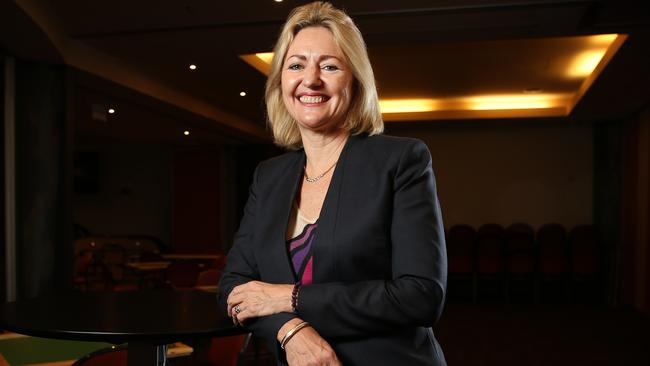NSW courts finally get tough on sex offenders as conviction rates rise
New statistics reveal 62.2 per cent of sex offenders now get a jail term, compared with 45.4 per cent in 1995, and their time behind bars is longer.

NSW
Don't miss out on the headlines from NSW. Followed categories will be added to My News.
The courts are finally getting tough on sex offenders with conviction rates at an all-time high as victims are being taken seriously empowered by the brakes put on aggressive questioning by barristers.
Official figures show that the number of people convicted of sex offences in the state’s courts doubled since 1995 - from 579 to 1006 - and more are going to jail.
NSW Bureau of Crime Statistics and Research reveals 62.2 per cent of sex offenders now get a jail term compared with 45.4 per cent in 1995 and their time behind bars is getting longer, from an average of 24.2 months in 1995 to 30.7 months in 2019, the last year for which figures are available.
The unprecedented outcome in the courts follows a sustained campaign by The Daily Telegraph “Justice for Women” which was launched after the horrifying gang rapes of 2000 and 2002 in Sydney which saw victims facing marathon trials, harrowing courtroom questions and delays of years before getting to court.

With only about 3 per cent of sexual assaults believed to be reported, Attorney-General Mark Speakman yesterday said he hoped the court figures would encourage more victims to come forward.
“We know that these offences are still vastly under-reported, so any increase in prosecutions and convictions is a positive and welcome trend,” Mr Speakman, who is also Minister for the Prevention of Domestic Violence, said.
“Sexual assault is an appalling crime that can cause lifelong trauma for victims.”
The Daily Telegraph’s campaign, which called for “no means no” to be enshrined in consent laws, led to reforms that mean women who are drunk or drugged cannot be deemed to have consented and delays in trials being reigned in. Barristers were also stopped from badgering alleged victims in the witness box.
Mr Speakman said the system was still “by no means perfect” and said the government was considering the latest recommendations from the NSW Law Reform Commission around the laws of consent in sexual offence matters including recommendations that the law should expressly state that a person does not consent to sex if they do not say or do anything to indicate consent, as well as that a person does not consent simply because they don’t physically or verbally resist.
Survivor Tracy Evans, who initially did not make a statement to police because she was scared, yesterday said she hoped the figures would encourage more women to report sexual assaults.

“It’s fabulous,” Ms Evans. 45, said.
She went to police with cigarette butts and a towel left behind by her attacker but did not make an official complaint until DNA later matched them to a serial offender, Robi Amacha, 40. He pleaded guilty to five counts of sexual intercourse without consent involving two victims.
“There is nothing to be ashamed of,” Ms Evans said.
“I only told one person and that person said that if I did not go to the police then I had no respect for the law and no respect for myself. I did it for myself and to stop this happening to other girls.”
Leading barrister Margaret Cunneen SC, who became well-known for prosecuting the notorious Skaf brother gang rapes and the gang rape of a 14-year-old girl by three Pakistani brothers, applauded the “huge strides” made in sexual assault laws and trials.
“The experience for the complaint has improved immeasurably over the decades,” Ms Cunneen, now at the private bar, said.
But she warned about going “too far” the other way and “destroying the standard of proof applicable in criminal cases”.
NSW Police Child Abuse and Sex Crimes Squad Commander, Detective Superintendent Stacey Maloney, said the police wanted to empower more victims to report the crimes.
“We must acknowledge the courage it takes victims of sexual violence to come forward and tell their stories,” she said.
“Once a report is made it informs NSW Police of a potential offender in the community and enables us to be aware of their potential threat while also assisting with future investigations. Your assault may not be isolated, so I implore victims not to isolate themselves.”
The BOCSAR figures include all sex offences from sexual touching to the most serious aggravated sexual assault across lower and higher courts.
More Coverage
Originally published as NSW courts finally get tough on sex offenders as conviction rates rise




